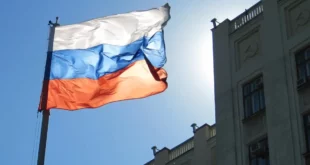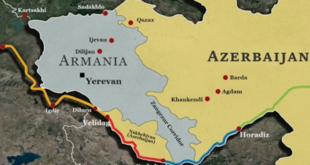 Georgia will hold a snap presidential election in January, president Mikheil Saakashvili has announced, a day after clashes between police and protestors demanding his resignation.His announcement came after troops flooded the streets of the Georgian capital after he earlier imposed a 15-day state of emergency following widespread unrest.
Georgia will hold a snap presidential election in January, president Mikheil Saakashvili has announced, a day after clashes between police and protestors demanding his resignation.His announcement came after troops flooded the streets of the Georgian capital after he earlier imposed a 15-day state of emergency following widespread unrest.
“I took the decision that Georgian presidential elections will take place on January 5,” Saakashvili said in a nationally televised address on Thursday.
Â
He has blamed Russia for the crisis in the country.
Jonah Hull, Al Jazeera’s correspondent in Moscow, said: “The two countries have had a history of escalating tensions over the last few years over Russia’s displeasure of Georgia’s moves toward the West.
Â
“Saakashvilli frequently has accused Russia of trying to destabilise his government and his country.
Â
“But I think the main question people are asking here in Moscow and in Tbilisi among the opposition … is whether he has evidence or whether he is here trying to invoke Georgia’s most popular international enemy, Russia, to try to deflect attention away from this.”
Â
Georgia’s opposition earlier urged its supporters to end protests in Tbilisi after the emergency decree banned demonstrations and restricted news broadcasts.
Â
Plea for calm
Â
The state of emergency was announced after riot police used rubber bullets, tear gas and water cannons on anti-Saakashvili demonstrators.
Â
The health ministry said 589 people had sought medical help during clashes the day before and that 20 remained in hospital.
Â
Davit Usupashvili, of the opposition Republic Party, said no new protests were planned.
Â
“We have told everybody to calm down,” he said.
Â
Army trucks and hundreds of soldiers blocked side roads leading into Tbilisi’s main street on Thursday, allowing only a handful of people through onto the normally busy road.
Â
Schools were closed until next week, only state corporations were allowed to broadcast news and meetings were banned under the emergency measures which will last until November 22, subject to parliamentary approval.
Â
Gun threat
Â
Armed police stormed the main opposition broadcaster on Wednesday and took it off air, forcing staff to the ground and holding guns to their heads.
Â
Human rights groups and the Georgian Orthodox church have described the president’s actions as “inexcusable”.
Â
International criticism of the government’s actions has also grown with the latest coming from Nato.
Â
“The imposition of emergency rule, and the closure of media outlets in Georgia … are of particular concern and not in line with Euro-Atlantic values,” said Jaap de Hoop Scheffer, Nato’s Secretary General said in a statement.
Â
The United States, which is Saakashvili’s main backer, has called for restraint.
Â
Diplomatic row
Â
Zurab Nogaideli, the prime minister, said the authorities had prevented a coup and Saakashvili said he had evidence that Russian intelligence had been organising the opposition.
Â
The Russian foreign ministry, which denies the charges, said it was expelling three Georgian diplomats in response to a similar earlier move by Tbilisi.
Â
Jonah Hull, Al Jazeera’s correspondent in Moscow, said many people there believed that Saakashvili was blaming Russia to detract from his own unpopularity.
Â
The crackdown followed six days of protests in front of parliament – Georgia’s worst political crisis since the Saakashvili was elected nearly four years ago.
Â
The protesters initially called for changes in the dates of planned elections and in the electoral system, but later made Saakashvili’s resignation their central demand.
Â
Source: Agencies
 Eurasia Press & News
Eurasia Press & News



